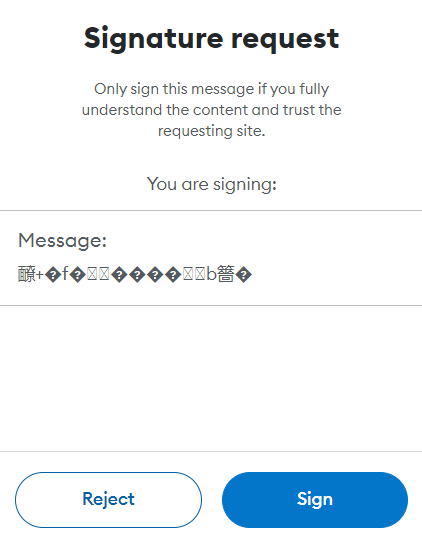I'm trying to sign a message in Viem and recover the signer in Solidity, it works as expected, however, the Metamask pop-up window displays the data to be signed incorrectly.
Here is my Viem ts code:
const signature = await walletClient.signMessage({
message: { raw: "0xe4A98D2bFD66Ce08128FdFFFC9070662E489a28E" as `0x${string}` },
});
console.log("signature:", signature);
// signature: 0x09a180eb5c1ab7914a811f5e216ac3741a1501d001497446c7ced23f3c72fd9f457cbbba457bcd514bb593b99b3ff52ab2f8e17042b600f1a6e54d9f32b33b041c
Here is my Solidity code that recovers the address correctly
First when given the address from above as input:
function getAddressHashedMsg(address input) public pure returns (bytes32 messageHash) {
messageHash = keccak256(
abi.encodePacked("\x19Ethereum Signed Message:\n", "20", input)
);
}
returns 0xf5b59420194a3cbe3e9f66c88c83b61ab6979585c19e8a7652a8791d85e705f2
When given the hash from getAddressHashedMsg() and the signature from Viem:
/**@notice Returns an address for an inputted signed message and signature */
function recoverSigner(
bytes32 _ethSignedMessageHash,
bytes memory _signature
) public pure returns (address) {
(bytes32 r, bytes32 s, uint8 v) = splitSignature(_signature);
return ecrecover(_ethSignedMessageHash, v, r, s);
}
This returns 0xe4A98D2bFD66Ce08128FdFFFC9070662E489a28E correctly.

